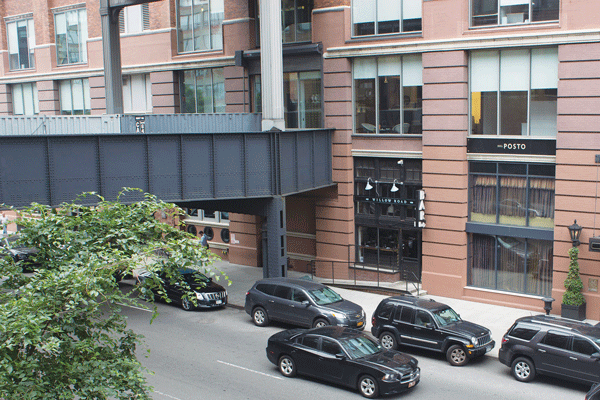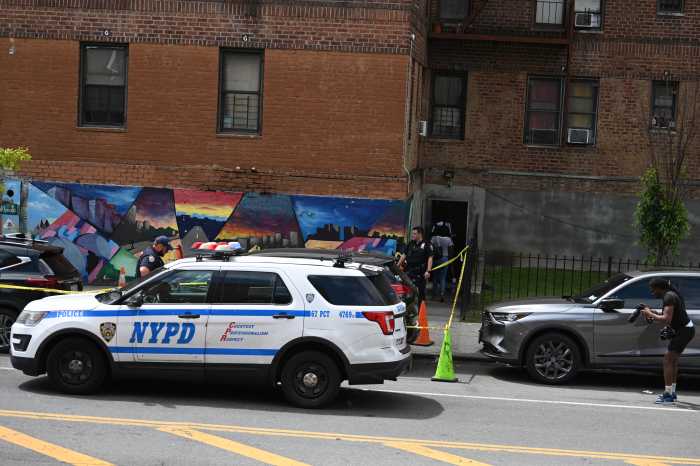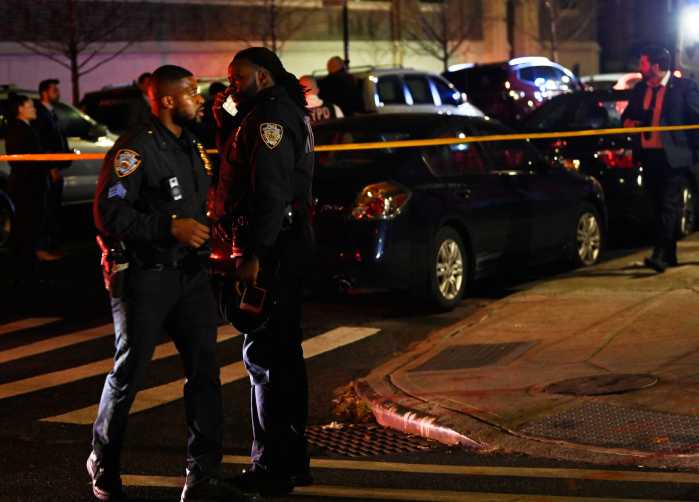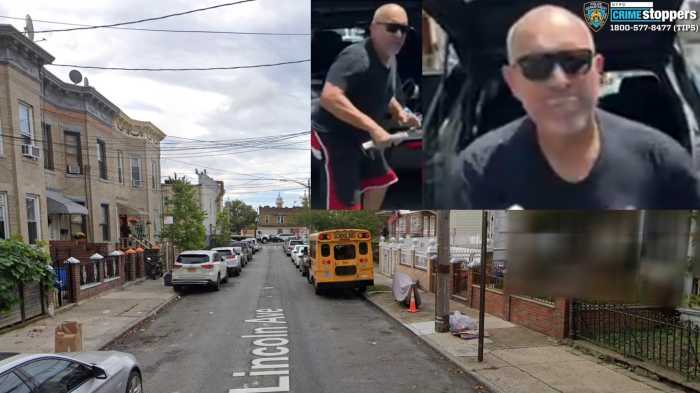
A longtime presence in the neighborhood and support from residents enabled West Bank Cafe to secure support from CB4 for its ongoing sidewalk cafe application.
BY ZACH WILLIAMS | Seemingly small details can have big implications for local businesses negotiating the Community Board 4 (CB4) sidewalk cafe permit process.
The board considers a number of criteria when deciding whether to recommend approval of outstanding applications to the city Department of Consumer Affairs (DCA), which ultimately oversees curbside dining. The potential impact to nearby residents, traffic, and the general neighborhood atmosphere often play critical roles in such decision-making — but in the case of one application, the order in which they appeared before the Business Licenses and Permits Committee (BLP) of CB4 may have played an influential role.
‘Denial Unless’ Verdict Curbs Sidewalk Cafe Applicant
“I thought it was interesting how the next item [on the committee’s agenda] had no problem [being approved],” said BLP member Lisa Daglian of the application of Willow Road (85 Tenth Ave., btw. 15th & 16th Sts.), which preceded that of West Bank Cafe (407 W. 42nd St., at Ninth Ave.) during the meeting. Both businesses sought to open sidewalk cafes outside their current respective locations until 11 p.m. throughout the week. However, in the case of Willow Road, the board ultimately recommended that their sidewalk presence end at 10 p.m., Sundays through Thursdays (through a “denial unless” verdict that staves off approval unless certain requested conditions are met by the applicant). According to Daglian, this denial might not have been the case had the BLP heard its application after, rather than before, West Bank Cafe.
“Who knows what would have happened?” she added in a telephone interview.

The order of business during a recent CB4 Business Licenses and Permits Committee meeting may have unduly impacted Willow Road’s ongoing application for a sidewalk cafe, said committee member Lisa Daglian.
Recommendations from the board, whether for or against an application, go to the DCA. The process through which CB4’s decisions are arrived at must be determined on a case-by-case basis, according to BLP committee co-chair Frank Holozubiec.
At the June 4 full board meeting of CB4, Holozubiec disagreed with Daglian when she raised the possibility that the application from Willow Road was unduly influenced by its place on the BLP’s agenda. West Bank is an “anchor establishment” with strong support from residents for its application, he said.
“People differed on what factors were relevant to giving people longer hours. I am not convinced that the order affected the process,” Holozubiec added during a telephone interview, before adding that, “In my mind, it was nothing against Willow Road. It was just a newer business. It just didn’t have the good track record that West Bank did.”
Zoning rules are also ambiguous as to how the presence of the High Line directly above the sidewalk outside Willow Road should be interpreted, according to Daglian.
A representative of West Bank Cafe declined a request for comment — as did Midmor Hospitality, which owns Willow Road.
Concerns for efficiency are important in composing the order of business, according to CB4 District Manager Robert Benfatto. Large public turnouts for specific agenda items and the busy schedules of meeting participants are two examples he gave of why one item might be listed before another.
“The agenda is put together by the Board Office and is efficiency driven,” he said in an email.
In accordance with guidelines adopted in 2006, obtaining CB4’s recommendation to serve customers on public pavement requires more of business owners than simply attending a committee meeting and explaining themselves. Among them are requirements that go beyond those issued by the city for sidewalk cafes including wider buffer space between seating and nearby parking meters, traffic signs, residential entrances, and subway grating.
In contrast to board policy recommending all sidewalk cafes close by 11 p.m., the department allows permit holders to operate as late as midnight Sunday through Thursday and until 1 a.m. on Friday and Saturday.
Architectural plans must portray surroundings in detail. The guidelines recommend submitting that on an 8×11-inch paper as well.
“The review process for new cafes is sometimes slowed by ambiguous plans or a lack of communication. In order to ensure a rapid response from the Community Board, applicants must also meet these more stringent submission requirements,” the guidelines state.
Convincing the board to support an application costs time, effort and money, according to Chelsea businesses that already have permits. A third party has represented The Diner (44 Ninth Ave., at 14th St.) at CB4 meetings over the last nine years, costing the business thousands of dollars, according to manager Dave Cohl who declined to give further specifics.
“It’s a bit of a process,” he said.
Once approved though, permit renewals come much easier, said Erol Doner, owner of the Istanbul Grill (310 W. 14th St., btw. Eighth & Ninth Aves.).
“It’s been almost ten years. It’s all the same,” he said of his outside dining area. “If you don’t change anything, it’s easy.”
There are no specific criteria by design for gauging whether a prospective sidewalk cafe will add to community ambiance or become a nuisance, said Holozubiec. Otherwise, applicants may gear their efforts towards meeting defined standards rather than comprehensively cooperating with the board, he added.
However, certain characteristics are recurring among successful applicants including time in the community and willingness to compromise with the board and adhere to its stipulated recommendations, according to Benfatto.
“We review all applications on a case by case basis and saturation is one of many considerations like traffic, type of license, size of establishment, etc. we consider when rendering a recommendation,” he said in an email before adding “Willow’s application was not denied. It’s just standard language: “denial unless” certain stipulations are agreed to. We’ve been doing it that way for seven years now and the ‘denial unless’ language was developed in consultation with the [State Liquor Authority].”
The process is not perfect, Daglian said. In one of the fastest-growing neighborhoods in New York City, even small changes in the local fabric can involve a large number of concerned parties. “Rules of thumb” are not the rule,” she said.
Careful and delicate deliberation maintains public dialogue while allowing individual stakeholders in the neighborhood to fulfill their business ambitions in a manner mitigating the possibility of negatively affecting others in the process, according to Daglian, who served as co-chair of the committee for about five years previously.
“It’s about finding balance. It’s about making sure that it’s a neighborhood for everybody,” she said.”
How the Business Licenses & Permits Committee Works
The BLP reviews liquor and cabaret license applications and applications for sidewalk cafes. Committee meetings provide an opportunity for community members to meet business owners who are applying for licenses. Often, community input leads to proactive changes in business plans that prevent problems later on. In the context of the 500-foot rule, the community opines on whether the new establishment is in the interest of the community. Applicants seeking approval, or residents with concerns about a licensed establishment, should contact CB4 with details of complaint. Some complaints can be resolved within the office through either the District manager or assistant district manager. If they are unable to resolve the problem directly, it will be referred to the committee. Items will be put on the agenda of the next committee provided the board was notified more than two weeks in advance of the meeting. This allows time for proper notification of the community. Businesses preparing to come before the BLP should fill and submit the Liquor License Stipulations Application of the Sidewalk Cafe Stipulation Application well in advance of the meeting, including plans and evidence of neighborhood outreach. Items will be put on the agenda of the next committee provided the board was notified more than two weeks in advance of the meeting. This allows time for proper notification of the community.
The next BLP meeting will take place at 6:30 p.m. on Tues., July 8, at the Intercontinental Hotel (300 W. 44th St., btw. Eighth & Ninth Aves.). For more info, call 212-736-4536 or visit nyc.gov/mcb4.




































